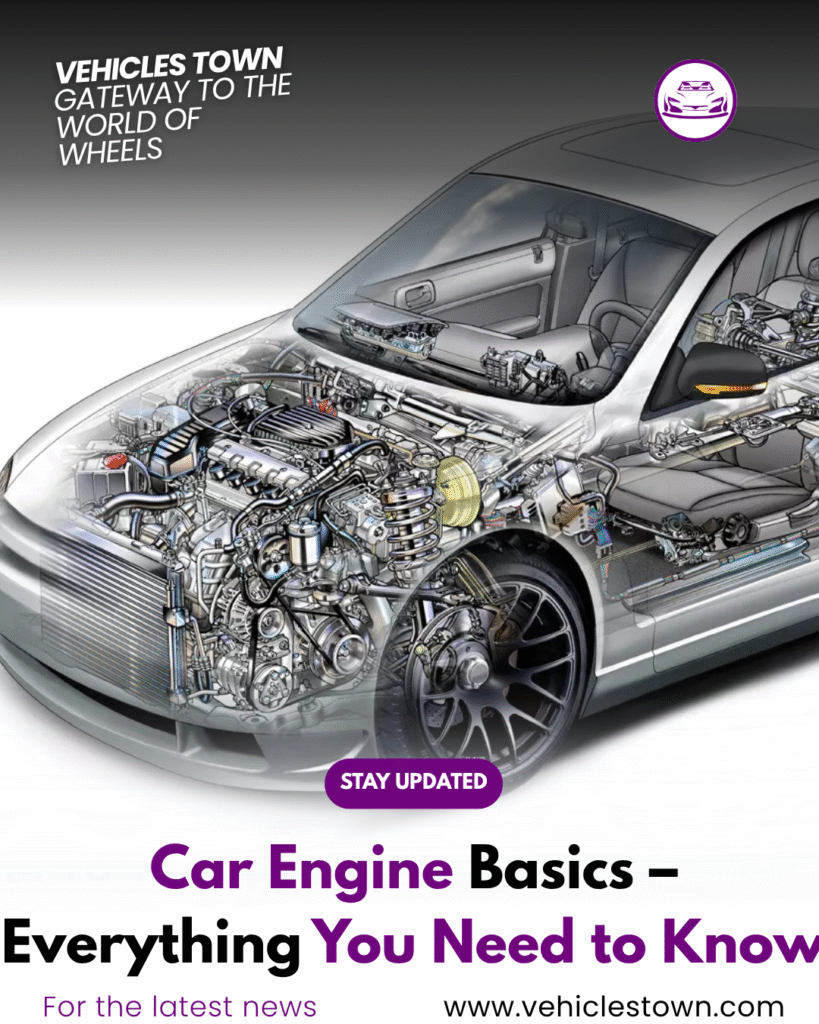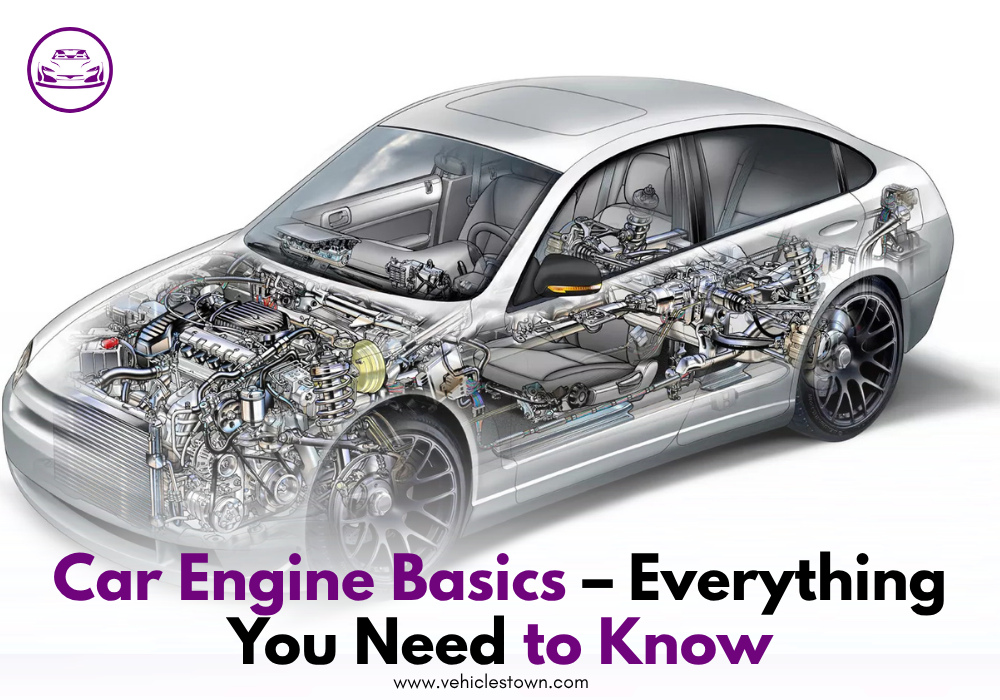Overview: Car Engine Basics
The engine is the most critical component of any car. Often referred to as the “heart” of the vehicle, it’s responsible for converting fuel into mechanical power that drives the car forward. Whether it’s a compact hatchback or a powerful SUV, every vehicle relies on a well-functioning engine to perform efficiently.
Get more updates: Number Plates Deadline Extended Till October 31 in Sindh
What is a Car Engine?
A car engine is a complex machine designed to turn fuel (petrol, diesel, or electricity) into motion. The most common type is the internal combustion engine (ICE), which burns fuel inside cylinders to generate power.
There are mainly three types of car engines:
- Petrol Engine
- Diesel Engine
- Electric Motor (in EVs)
Main Components of an Engine
- Cylinder Block – The core of the engine where combustion happens.
- Pistons – Move up and down to convert energy.
- Crankshaft – Turns piston motion into rotation.
- Camshaft – Controls the timing of valves.
- Valves – Let air/fuel in and exhaust out.
- Spark Plug – Ignites the fuel-air mixture (in petrol engines).
- Timing Belt/Chain – Synchronizes camshaft and crankshaft.

How Does It Work? (Simplified 4-Stroke Process)
- Intake: Air and fuel enter the cylinder.
- Compression: The piston compresses the mixture.
- Combustion: The spark plug ignites it, creating an explosion.
- Exhaust: Waste gases are expelled.
Why Understanding Engines Matters
Helps identify early signs of problems.
Makes maintenance cheaper and easier.
Boosts your resale value by keeping the engine healthy.
Common Engine Problems
- Overheating
- Oil leaks
- Knocking sounds
- Power loss
- Warning lights (Check Engine)
Final Verdict
Understanding your car’s engine is the first step to being a smart car owner. Regular oil changes, timely servicing, and paying attention to warning signs can extend its life and keep you on the road safely.
More Questions People Ask About Car Engines
Q1: What’s the best engine oil for cars in Pakistan?
A: It depends on your car’s make and engine type. However, 5W-30 or 10W-40 are common for most local vehicles. Always check your owner’s manual for exact recommendations.
Q2: How do I check the engine oil level myself?
A: Park on a level surface, let the engine cool, pull out the dipstick, wipe it clean, reinsert it, then pull it out again to check the oil level. It should be between the “min” and “max” marks.
Q3: What’s the ideal engine temperature while driving?
A: Most engines run best between 90°C to 105°C. If it goes higher, it may be overheating, so stop and let it cool down.
Q4: How often should I replace the engine air filter?
A: Replace it every 15,000 to 20,000 km, or as recommended by your manufacturer. If you drive in dusty areas, replace it sooner.



